Photo AI
Last Updated Sep 26, 2025
Kaiser Wilhelm II and his chancellors Simplified Revision Notes for A-Level Edexcel History
Revision notes with simplified explanations to understand Kaiser Wilhelm II and his chancellors quickly and effectively.
326+ students studying
Kaiser Wilhelm II and his chancellors
From 1888 to 1918, Wilhelm II was the Kaiser of Germany and King of Prussia. On 9 March 1888, Kaiser Wilhelm I (William I) died in Berlin. He was succeeded by Wilhelm II's father, Frederick III who was already suffering from throat cancer.
Despite being a huge admirer of Bismarck, Wilhelm II encountered conflict with Germany's Iron Chancellor. The young Kaiser disagreed with Bismarck's peaceful foreign policy and wished for aggressive German expansion. The heated disagreements between Wilhelm II and Bismarck led to the resignation of the latter. In a letter, Bismarck pointed out the emperor's interference with his foreign and domestic policies. In 1890, Bismarck was succeeded by Leo von Caprivi.
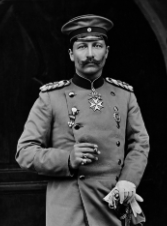
Kaiser Wilhelm II ruled Germany from 1888-1918
Leo, Graf von Caprivi (1890-94)
Caprivi was a military administrator who succeeded Bismarck as chancellor in 1890. One of Caprivi's initiatives as chancellor was the refusal to renew the Reinsurance Treaty with Russia. This ended the partnership between the tsardom and the Junkers.
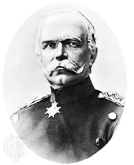
Following the end of the German-Russian treaty, Caprivi supported Austro-Hungarian plans in the Balkans. Moreover, he also planned to make Great Britain part of the Triple Alliance through the German concessions to British interests in East Africa.
Economically, Caprivi lowered tariffs imposed by Bismarck. Moreover, he also rejected the renewal of anti-Socialist laws in the hope of gaining their favour. Caprivi's social and foreign policies received opposition from parties in the Reichstag. Botho Graf zu Eulenburg, Prussian prime minister, became one of Caprivi's critics. In response to the struggle between Prussia and Germany, Wilhelm II dismissed Caprivi and Eulenburg in 1894.
Signed in 1887, the Reinsurance Treaty was a secret agreement between Germany and Russia following the collapse of the Three Emperors' League.
Chlodwig Karl Viktor, Prince of Hohenlohe-Schillingsfürst (1894-1900)
In 1894, after serving as prime minister of Bavaria in 1870 and Statthalter of Alsace-Lorraine, 75-year-old Chlodwig Karl Viktor succeeded Caprivi as chancellor of Germany. Unlike his predecessor, Hohenlohe renewed the agreement with Russia. He also dropped the support for Austria-Hungary. However, Hohenlohe made no significant efforts to pass or amend anti-Socialist laws. Generally, he attempted to copy the Bismarck era without much conflict.
On 3 January 1896, the Kruger telegram sent by Kaiser Wilhelm II to Transvaal president, Paul Kruger, ignited the German-Anglo rivalry.
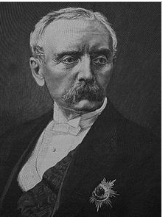
The telegram contained the Kaiser's congratulatory message to Transvaal after repelling the Jameson Raid, an attack on the South African Republic by the British.
Bernhard von Bülow (1900-09)
Under the persuasion of Philipp, Fürst zu Eulenburg, Wilhelm II's personal friend, Bülow, was appointed as chancellor in 1900. Under Bülow, domestic policies such as the extension of the claiming period for accident insurance, creation of industrial arbitration courts in towns, control over child labour and expansion of health insurance were passed. In 1904, a polling booth law which improved secret ballots was also introduced.
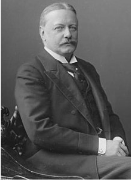
In international politics, Bülow was able to put Germany in between the interests of other great powers such as Great Britain, France and Russia. Regarded by Wilhelm II as 'his Bismarck', Bülow pushed for aggressive foreign policy like the Kaiser wanted. During his chancellorship, Germany acquired colonies in China and the Pacific. He also supported Admiral Alfred von Tirpitz's modernisation of the German navy.
Bülow lost the support of the Reichstag after the Kaiser's interview with the Daily Telegraph in October 1908. He was blamed for allowing Wilhelm II's announcement about expanding the German Navy which later created tensions with other superpowers. In 1909, he was forced to resign and was replaced by Theobald von Bethmann-Hollweg.
Theobald von Bethmann Hollweg (1909-1917)
Unlike his predecessors, Hollweg had no experience in foreign affairs. On 14 July 1909, he succeeded Bülow as chancellor. His attempts to negotiate with Britain over the reduction of naval armaments in March 1909 and February 1912 resulted in nothing due to opposition from Tirpitz and the Kaiser himself. During the Balkan Crises (1912-1013), Hollweg and British Foreign Secretary, Sir Edward Grey, were successful in alleviating tensions between Russia and Austria-Hungary.
At home, despite being politically conservative, Hollweg recognised the need for moderate reforms. His diagonal policy aimed to work with a coalition of right-wing parties in the Reichstag without alienating the left. Hollweg was able to introduce a constitution for Alsace-Lorraine, but failed to democratise Prussia.
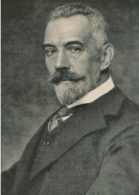
While the Kaiser's decision on supporting Austria-Hungary against Serbia in July 1914 was absolute, some historians viewed that Hollweg's approval for the action was pivotal in the outbreak of the First World War.
Georg Michaelis (July - November 1917)
On 13 July 1917, following the forced resignation of Hollweg, Michaelis became the chancellor of Germany and Minister President of Prussia. Michaelis was regarded as Germany's 'first bourgeoisie chancellor'. His chancellorship was largely influenced by Paul von Hindenburg, army commander, and Erich Ludendorff, German General Staff. Although supported by the army, the new chancellor failed to get the Reichstag which was then dominated by the centre-left.
Following the naval mutinies at Wilhelmshaven, the Reichstag demanded Michaelis' resignation in August. The resignation took effect on 1 November 1917.
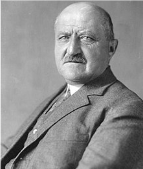
Paul von Hindenburg led the German Imperial Army during the First World War. Despite the German defeat, he was regarded as a war hero which helped his political career. Between 1925 and 1934, he served as the President of Germany. Hindenburg was influential in the rise of Adolf Hitler as chancellor of Germany.
Georg von Hertling (1917-18)
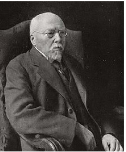
Prior to being chancellor of Germany and Minster President of Prussia, Hertling served as the Minister President of Bavaria between 1912 and 1917. Similar to Michaelis, Hertling was seen as a puppet of Hindenburg and Ludendorff, who at that time constituted virtual military dictatorship. Due to age and conservatism, Hertling was proven unable to manage the last quarter of the war. As a result, he was forced to resign.
Maximilian von Baden (October - November 1918)
For only 37 days, Max of Baden served as Chancellor of the German Empire. Despite his initial reluctance, Baden negotiated the armistice based on the proposal of US President Woodrow Wilson. His very short rule saw the collapse of the German Empire, abdication of Wilhelm II and transformation of the government into a parliamentary system with SPD Chairman Friedrich Ebert as president of the Weimar Republic.
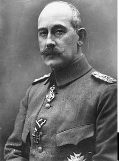
500K+ Students Use These Powerful Tools to Master Kaiser Wilhelm II and his chancellors For their A-Level Exams.
Enhance your understanding with flashcards, quizzes, and exams—designed to help you grasp key concepts, reinforce learning, and master any topic with confidence!
410 flashcards
Flashcards on Kaiser Wilhelm II and his chancellors
Revise key concepts with interactive flashcards.
Try History Flashcards38 quizzes
Quizzes on Kaiser Wilhelm II and his chancellors
Test your knowledge with fun and engaging quizzes.
Try History Quizzes29 questions
Exam questions on Kaiser Wilhelm II and his chancellors
Boost your confidence with real exam questions.
Try History Questions27 exams created
Exam Builder on Kaiser Wilhelm II and his chancellors
Create custom exams across topics for better practice!
Try History exam builder120 papers
Past Papers on Kaiser Wilhelm II and his chancellors
Practice past papers to reinforce exam experience.
Try History Past PapersOther Revision Notes related to Kaiser Wilhelm II and his chancellors you should explore
Discover More Revision Notes Related to Kaiser Wilhelm II and his chancellors to Deepen Your Understanding and Improve Your Mastery
96%
114 rated
The Kaiserreich, 1871-1914
The structure of the German Empire in 1871
492+ studying
193KViews96%
114 rated
The Kaiserreich, 1871-1914
Kaiser Wilhelm I and Otto von Bismarck
346+ studying
182KViews96%
114 rated
The Kaiserreich, 1871-1914
Impact of the Germany's new constitution, the federal government and the Länder
236+ studying
181KViews96%
114 rated
The Kaiserreich, 1871-1914
Importance and role of the Reichstag and the parties
222+ studying
185KViews